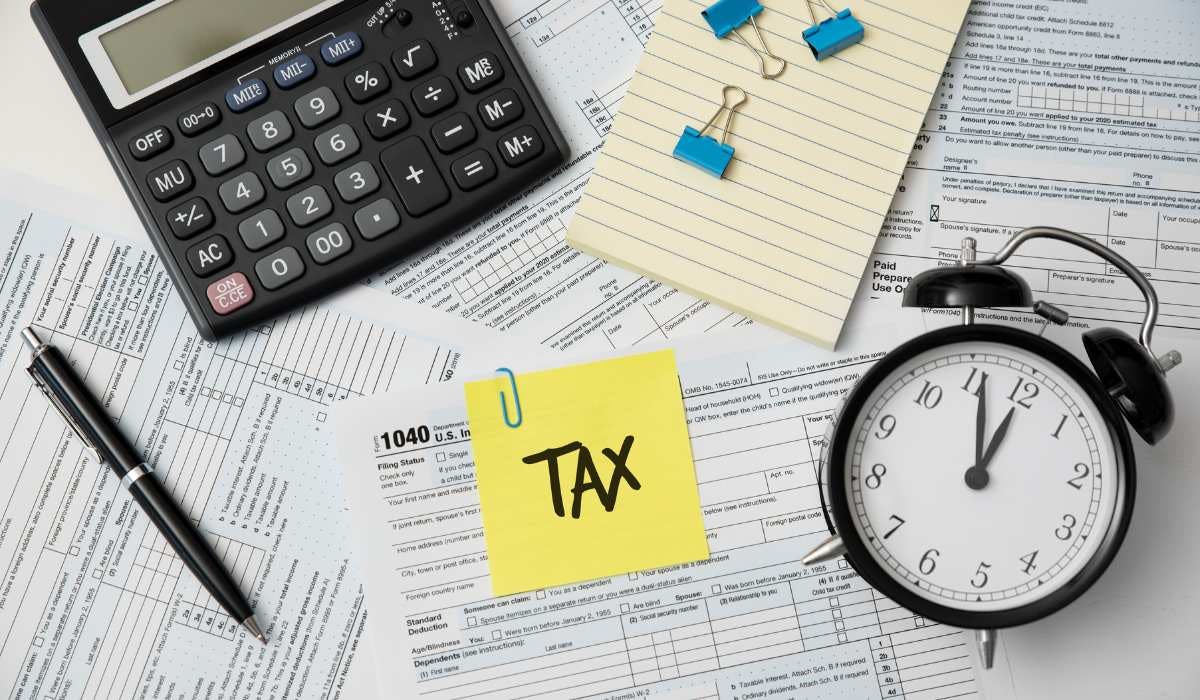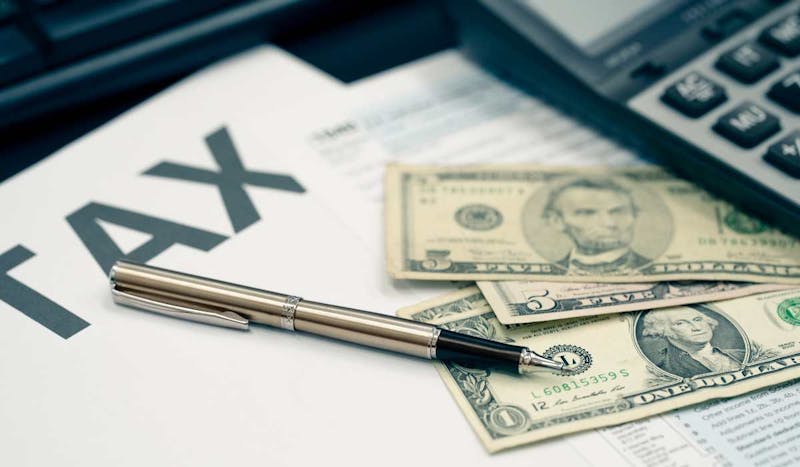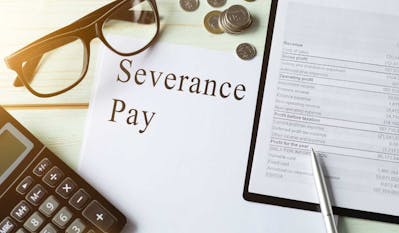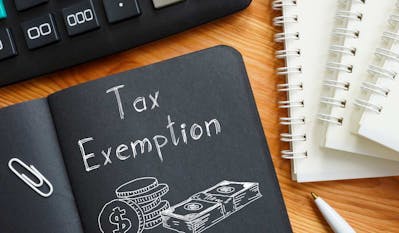Profits from sales outside Hong Kong (e.g., mainland China) are not subject to Hong Kong taxes.
Main corporate income tax in Hong Kong, applicable to all profits made within Hong Kong.
Rates range from 8.25% for profits up to HKD 2 million to 16.5% for higher profits.
Tax credits available under Double Tax Agreements (DTA) to avoid double taxation.
Employers must contribute 5% of an employee's monthly income, capped at HKD 30,000 per month.
In Hong Kong, companies must pay taxes on profits earned within Hong Kong.
This means they have to keep track of their tax obligations all year round.
Companies might need to make an early tax payment and eventually file a tax return to settle any tax liabilities.
Understanding how the tax system works is important to avoid any tax problems.
This guide will help you on how to file your corporate taxes in Hong Kong properly and keep your business in compliance with the tax rules.
What's Corporate Tax Planning in Hong Kong?
Corporate tax planning in Hong Kong means managing your company's finances to minimize tax liability while staying compliant with regulations.
It can be as simple as making sure you have enough money in the bank to cover any unexpected expenses or as complex as figuring out how much profit your company will make next year.
The main goal is to reduce the tax burden and pay the lowest legal taxes possible.
The first step in corporate tax planning is understanding the different types of taxes you'll need to pay.
Tax planning is for compliance. Be sure you meet all filing requirements and avoid penalties.
Territorial Tax System
Hong Kong operates under a territorial tax system, unlike many other countries.
Companies are only taxed on profits earned within Hong Kong.
If a company generates most of its sales in mainland China, those profits won't be subject to taxation in Hong Kong.
Understanding this concept is important because it can greatly affect the total taxes you'll need to pay.
Profits Tax
In Hong Kong, there's one main corporate income tax called the profits tax.
It applies to all profits a company makes in Hong Kong, no matter where they come from.
This includes profits arising from activities like making and selling goods, providing services, owning property, and earning investment income in Hong Kong.
The Hong Kong profits tax rate increases as a company's profits increase, creating different tax rates for companies making smaller or larger profits.
Currently, the normal profits tax rate in Hong Kong depends on the assessable profits.
It can range from a concessionary tax rate of 8.25% for profits up to HKD 2 million to 16.5% for profits exceeding that amount.
Hong Kong currently does not impose withholding taxes on dividends and interest.
Provisional Profits Tax
The Inland Revenue Department (IRD) requires companies to pay provisional profits tax to ensure a steady flow of tax revenue throughout the year.
Companies are required to make two installments during the current tax year. The IRD sets the specific due dates.
Once a company files its annual tax return, the IRD assesses its actual profits tax liability based on its financial statements for the year.
Any provisional profits tax paid will be credited toward the final tax amount owed, and the company will receive a refund from the tax authority if the payments exceed the final tax liability.
Tax Incentives
Hong Kong provides various tax incentives to attract businesses and promote specific activities to lessen your tax burden.
These incentives may include tax exemption, reduced tax rate, and tax deduction.
Certain industries, like aviation, enjoy reduced profit tax rates.
Research and development (R&D) expenses may qualify for profit tax deductions.
If you've paid taxes on profits earned in another jurisdiction under Double Tax Agreements (DTA) with Hong Kong, you can claim a tax credit in to prevent double taxation.
Meanwhile, offshore funds meeting specific criteria can be exempt from profits tax.
If your business incurs a loss in a certain year, you might qualify to claim a tax credit for that loss against profits from the last three years, potentially resulting in a tax refund.
Property Tax
Businesses that own real estate in Hong Kong are liable to pay property tax.
The property tax is levied on the property's net assessable value (NAV), not the market value.
Hong Kong has a flat rate of 15% for property tax, but businesses may be able to offset some of this cost by deducting the property tax paid from their corporate profits tax liability, potentially lowering their overall tax burden.
Stamp Duty
Stamp duty is a tax imposed on various transactions in Hong Kong, such as property and stock transfers.
Considering stamp duty when planning your corporate taxes can increase the cost of certain business activities.
The purchase price of property impacts the amount of stamp duty owed.
When a company buys property in Hong Kong, stamp duty is payable based on the transaction value. The rates vary, ranging from HKD 100 for lower-value properties to 4.25% for properties over HKD 20 million.
On the other hand, a 0.2% stamp duty applies to Hong Kong stock transfers.
Mandatory Provident Fund (MPF) Contribution
Apart from the Mandatory Provident Fund (MPF) contribution in Hong Kong, there are no payroll taxes.
As per the MPF scheme, an employer needs to contribute 5% of an employee's monthly income.
The maximum income level for contributions is HKD 30,000 per month. Additionally, employers can make voluntary contributions beyond the mandatory requirement.
What's Corporate Tax Filing in Hong Kong?
Tax filings are done annually. They require you to provide information about your company's finances, including its assets, liabilities, and equity.
Your accountant will use this data to prepare your company's tax return.
You'll also need to keep track of your company's expenses during the year.
Expenses can include anything from office supplies to travel costs.
Anything spent on behalf of the company should be accounted for.
How Do I File My Corporate Tax Return in Hong Kong?
Corporate tax returns are filed with the Inland Revenue Department. To get started, you'll need to contact an accountant who specializes in business tax preparation. He or she will help you determine which forms you need to complete, what information needs to be included, and how to fill them out.
Your accountant will then prepare your return using the information provided. Once completed, he or she will send the return to the Inland Revenue Department along with payment.
Click here to learn more about Air Corporate's accounting services and how they help businesses with their annual tax returns.
Is there an Audit Process in Hong Kong?
An audit is a review of your business records to ensure they're accurate. An auditor will look over your books and compare them to what you reported on your tax return. Audits happen randomly throughout the year. Most audits last between 30 minutes and three hours.
If your business has been audited, you'll receive a letter detailing the findings. After receiving your notice, you'll have 60 days to respond. If you don't agree with the findings, you can appeal the decision.
Can Companies Avoid Taxes?
Yes! Some companies take advantage of loopholes in the law to reduce their tax burden. The most common loophole is known as “tax avoidance.” This involves taking steps to lower your company's taxable income.
For example, some companies move money around so they appear to make less profit than they actually do. By moving profits into different countries or holding cash overseas, companies can avoid paying taxes.
Another way companies try to reduce their tax bill is by using tax shelters. These are ways to shift income away from the country where it was earned.
Companies can also deduct certain expenses from their taxable income. Deductions are things like depreciation, interest payments, and rent. Business owners can claim these deductions even though they aren't directly related to running the company.
Do I Need a Professional Accountant to Help Me With Corporate Tax Filing in HK?
No! You don't need a professional accountant to file corporate tax returns in Hong Kong. However, if you want to save time and money, you may consider hiring one.
In addition to filing your own tax return, accountants can help you manage your finances. They can advise you on how much money you should set aside each month for payroll, bills, and other expenses.
They can also help you plan your budget. This includes setting aside money for marketing, advertising, and new products. It can also mean planning for retirement.
Accountants can also help you find ways to minimize your tax liability. They can recommend strategies to reduce your taxable income.
Do I Have to Pay Income Tax in Hong Kong?
Hong Kong residents pay income tax. Residents who earn more than HKD 150,000 per year must pay 15% income tax. Those earning less than that amount only pay 7%.
Residents of New Territories pay higher rates than those living elsewhere in Hong Kong. For instance, people living in Kowloon pay 10%, while those in the New Territories pay 12%.
Residents of Hong Kong Island pay 8% regardless of income. People living in the New Territories pay 9%.
What Are the Benefits of Being a Resident in Hong Kong?
Being a resident in Hong Kong gives you access to many benefits. One of the biggest perks is healthcare. Residents get free medical care at public hospitals.
You can also apply for permanent residency after five years of living here. Permanent residency allows you to work and live in Hong Kong without worrying about immigration rules.
You can also enjoy discounts on goods and services. Many stores offer special deals just for residents.
How Do I File My Personal Income Tax Return in Hong Kong?
The easiest way to file your personal income tax return is online. Simply go to the Inland Revenue Department (IRD) website. Click on the link labeled “Tax Return” and follow the instructions.
Alternatively, you can download an application form and mail it to Inland Revenue Department. Forms can be found at any post office.

Hong Kong Tax Compliance Laws
There are two types of taxes: direct and indirect.
Direct taxes include income tax, value-added tax, and land transfer duty. Indirect taxes include sales tax, stamp duties, and import duties.
Direct taxes are based on your total income. The rate depends on your annual income. If you make over HKD 150,000, you will have to pay 15%. If you make under this amount, you will only pay 7%.
Indirect taxes are based on the price of goods or services. Sales tax is charged when you buy something. Stamps are used to send letters and packages. Import duties are fees paid when importing goods into Hong Kong.
If you fail to pay your taxes, you could face penalties. Penalties range from HKD 5,000 to HKD 50,000.
If you want to avoid paying these fines, consider using a professional accountant. An accountant can help you prepare your tax returns. He or she can also help you with financial management.
Air Corporate's accounting services help companies sail smoothly on the rough seas of the tax season. Get started today!
Report Income and Assets Dutifully
Income tax compliance laws require you to report all of your income and assets. This includes interest earned, dividends received, capital gains, gifts, inheritances, and other sources of income.
When reporting income, keep track of the source of each dollar. You should record where the money came from. This helps you determine whether or not you owe additional taxes.
For example, if you receive a dividend check, you need to know whether or not it was taxed. If you do not know how much you were taxed, you may end up owing more money.
Similarly, if you sell property, you need to know what portion of the proceeds went towards paying taxes. If you cannot figure out how much you paid in taxes, you may be liable for additional taxes.
Be sure to keep records of all transactions involving money. These records will help you comply with tax law.
Keep Your Books Balanced
Corporations must keep accurate books of account. They must also maintain adequate records that show their income and expenses.
Each year, corporations must file an income tax return. Each corporation has its own set of books. It keeps separate accounts for each type of business activity.
A corporation's books of account must contain detailed information on every transaction. For example, they must list the date, time, location, and purpose of each purchase.
They must also list the name of each person involved in the transaction. A corporation must keep a copy of each document related to a particular transaction.
This ensures that it can prove that it did indeed conduct the transaction. If there is a dispute about a transaction, the company can produce documents as proof.
You should also keep copies of all correspondence sent between yourself and the government. This includes any requests for documentation.
It is important to keep good records. If you do not, you may find yourself facing heavy fines.
Identify Tax Deductibles and Exemptions
Tax deductions and exemptions allow you to reduce your taxable income.
Some types of deductions include:
- Business Expenses – You may deduct certain expenses incurred while conducting your business activities.
- Charitable Contributions – You may deduct contributions made to charities.
- Legal Fees – You may deduct legal fees associated with filing your tax return.
- Medical Expenses – You may claim medical expenses as a deduction.
- Moving Costs – You may deduct moving costs associated with relocating your business.
- Rental Property – You may deduct rental payments made to use real estate owned by your corporation.
- Taxes Paid – You may deduct taxes paid on behalf of your corporation.
- Vehicle Expenses – You may subtract vehicle-related expenses from your taxable income.
These are just some examples of tax deductions. Consult your accountant to learn more.
When Are Hong Kong Taxes Due?
The due date for filing your corporate income tax returns depends on your status as a resident or nonresident.
If you are a resident, you have until April 30th to file your return. If you are a non-resident, you have until October 31st to file.
Nonresidents who earn less than HKD 5 million per annum are exempt from filing a tax return.
Residents who earn over HKD 5 million per annum must file a tax return.
How to Pay Corporate Tax in Hong Kong
Hong Kong residents can pay corporate tax through direct debits into their bank accounts, while nonresidents can make payments through cheques or electronic transfers.
Payments must be made within three months after the end of the financial year. Doing so helps prevent late penalties.
What if I Don't Have Records?
If you don't have records, you can still file a tax return. However, you might face stiff penalties.
For example, if you fail to report your income, you could receive a fine of up to HKD 50,000.
If you fail to file your return, you could receive a penalty of up to HKD 10,000.
To avoid these penalties, you need to ensure that you maintain adequate records.
You should keep records for at least six years. If you don't, you will be required to provide evidence when asked to do so.
Your records should include details such as:
- The names of people involved in transactions
- Details of the nature of the transaction
- Dates of the transaction
- Any other information is relevant to the transaction.
Can I File My Return Online?
Yes. There is no charge for filing online. However, there may be charges for making changes to your return.
Do I Need an Accountant?
An accountant can help you prepare your tax return.
They can also advise you on how best to manage your money.
A good accountant will know what you owe and how much you'll get back.
They will also help you understand the rules and regulations relating to taxation.
In addition, they will assist you in preparing your tax return.
Learn how Air Corporate helps businesses with their Hong Kong taxes.









